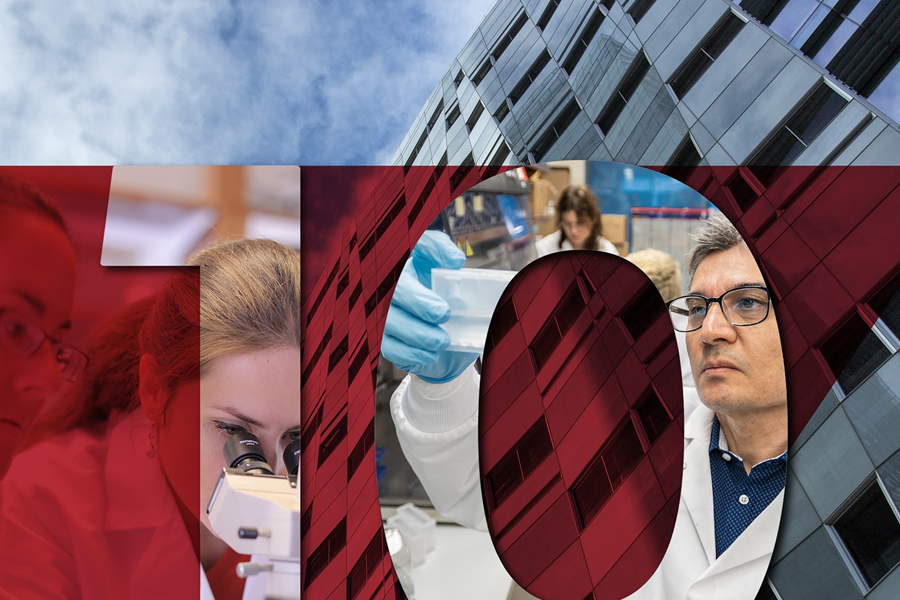
Ten years ago, Weill Cornell Medicine opened the Belfer Research Building, creating a springboard for high-impact translational research that has been key to the institution’s growth as a leading academic medical center.
A testament to inspired philanthropy, the facility was made possible by a $100 million gift from Renée and Robert Belfer, for whom the building was named.
“My parents were honored to make a gift that set Weill Cornell Medicine on the path to becoming a world-class research enterprise,” says Board of Fellows member Laurence Belfer. “We are gratified by the role that the Belfer Research Building has played in facilitating cross-collaboration among scientists from so many disciplines, ushering in a new era of team science at Weill Cornell Medicine.”
Powered by the extraordinary support of donors – who gave more than $550 million toward construction, recruitment of top researchers and program support – the Belfer Research Building opened in 2014, the centerpiece of the Discoveries that Make a Difference campaign, which ran from 2006 to 2013.
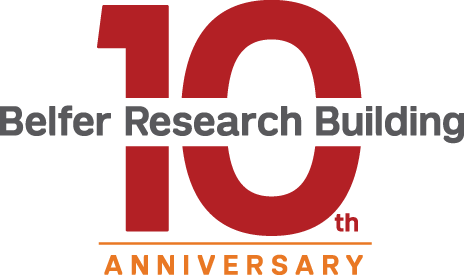
The 18-story Belfer Research Building, with its 13 floors of laboratories, dramatically expanded Weill Cornell Medicine’s research enterprise, enabling a bench-to-bedside approach that has helped transform patient care. The 480,000-square-foot building, on East 69th Street near York Avenue, is devoted to translational research that targets a wide range of illnesses, including cancer, cardiovascular disease, metabolic diseases, neurodegenerative diseases such as Alzheimer’s and Parkinson’s, children’s health, global health and infectious diseases.
Since the building opened a decade ago in January 2014, Weill Cornell Medicine’s sponsored research funding has more than doubled – jumping from $191 million in 2014 to $427 million in 2023, with a 92 percent increase in the number of faculty funded by the National Institutes of Health (NIH). Recently, Weill Cornell Medicine was ranked number 21 among academic medical institutions receiving NIH funding – a rise of 16 spots in the rankings since 2017 – and that progress is a direct testament to the influential research now being conducted at the Belfer Research Building.
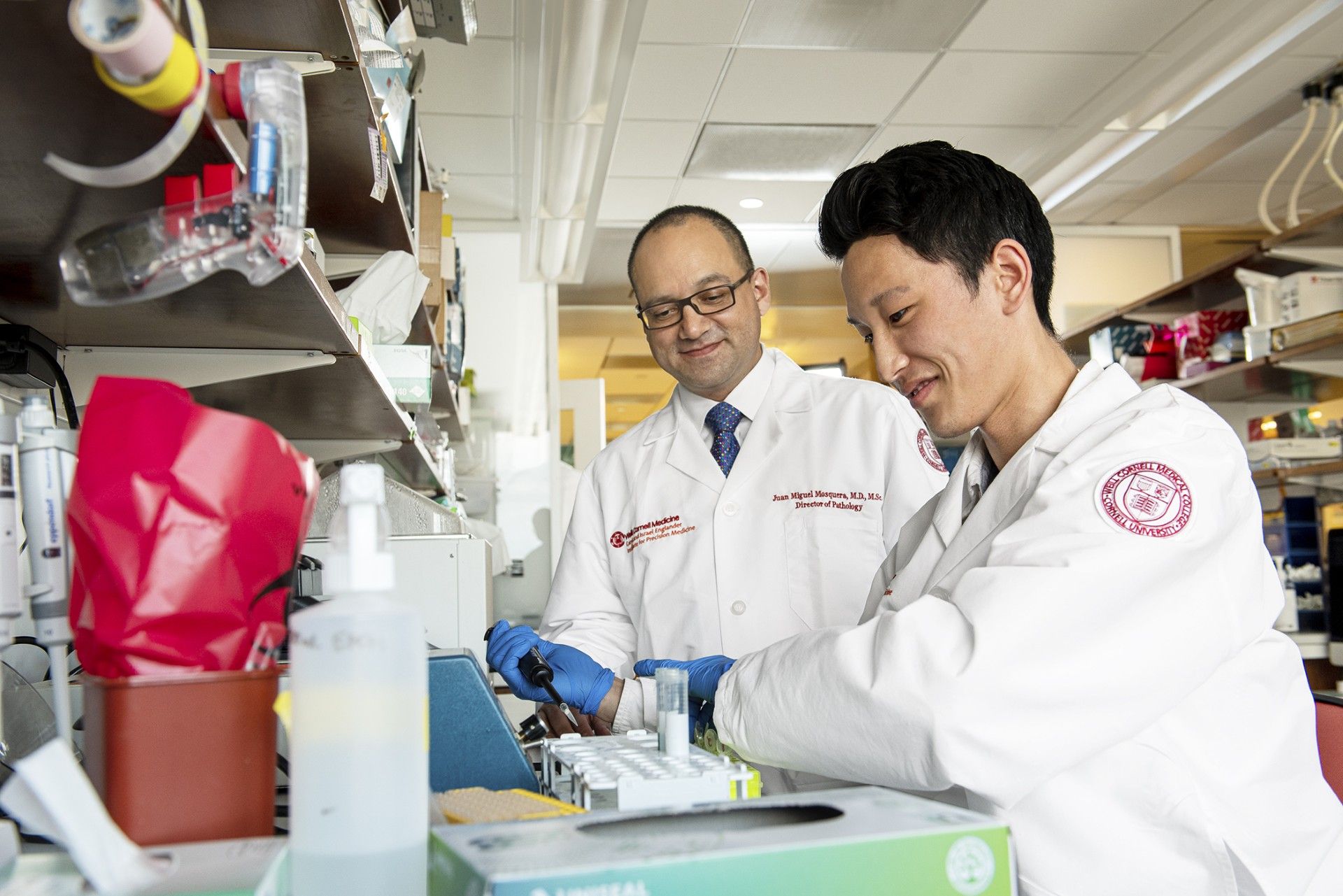
Many of Weill Cornell Medicine’s leading programs are headquartered there – such as the Joan and Sanford I. Weill Center for Metabolic Health, the Gale and Ira Drukier Institute for Children’s Health, and the Sandra and Edward Meyer Cancer Center, among others noted below – and have made this dramatic growth possible.
The building is also home to programs in virology and infectious disease that contributed significantly to the scientific understanding of COVID-19.
And now, through the current $1.5 billion We’re Changing Medicine campaign, Weill Cornell Medicine is building upon this foundation, with a planned expansion of programs focusing on genomics, data science, neuroscience, immunotherapy, regenerative medicine, population health, women’s health and many others.
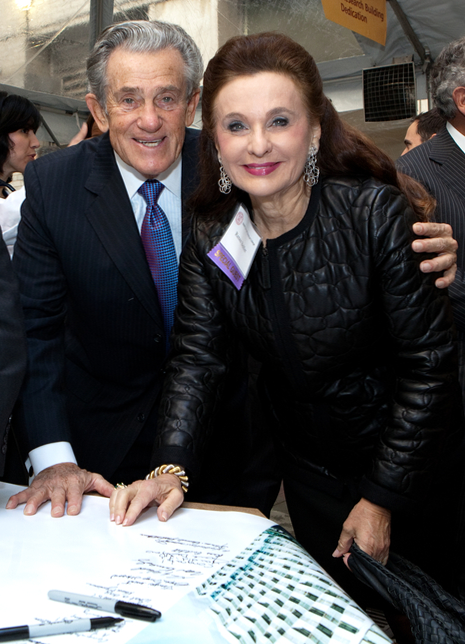
Bob and Renée Belfer
“Renée and Bob Belfer envisioned the potential for cutting-edge translational science to change medicine in a meaningful way, and we are deeply grateful for their transformational gift,” says Dr. Robert A. Harrington, the Stephen and Suzanne Weiss Dean of Weill Cornell Medicine and provost for medical affairs of Cornell University. “Through the generosity of many donors, the Belfer Research Building enabled us to expand our core research programs, ushering in an exciting new era of growth for our institution.”
Leading philanthropic support for the Belfer Research Building was also provided by Board of Fellows Chair Emeritus Sanford I. Weill and his wife, Joan, who gave a gift of $250 million, and gifts totaling $100 million from Board of Fellows member Maurice Greenberg, his wife, Corinne, and The Starr Foundation.
“Bob and Renée truly inspired others to support our research enterprise, and they have made an enduring impact on patient care,’’ says Board of Fellows Chair Jessica M. Bibliowicz. “Extraordinary generosity such as theirs has such incredible power to change lives for the better.”
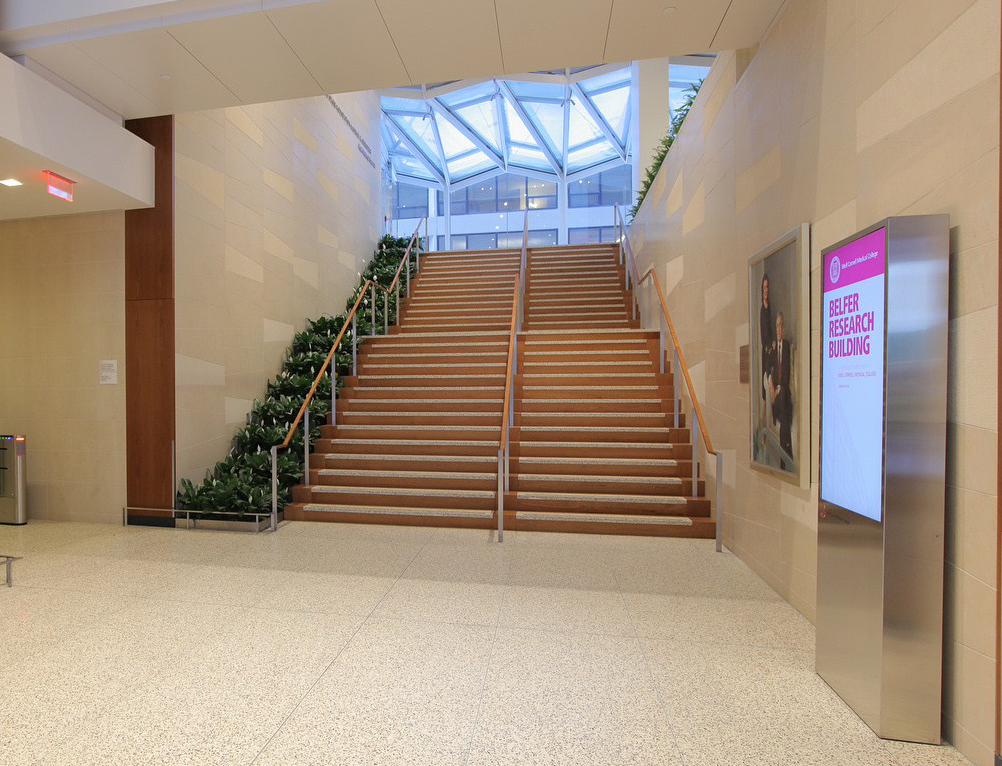
Centers and Institutes
We are exceptionally grateful for the generous philanthropy that has established the outstanding research centers and institutes that have had laboratories in the Belfer Research Building, including:
- Joan and Sanford I. Weill Center for Metabolic Health
- Sandra and Edward Meyer Cancer Center
- Englander Institute for Precision Medicine
- Friedman Center for Nutrition and Inflammation
- Helen and Robert Appel Alzheimer’s Disease Research Institute
- Feil Family Brain and Mind Research Institute
- Gale and Ira Drukier Institute for Children’s Health
- Jill Roberts Institute for Research in Inflammatory Bowel Disease
- Dalio Institute of Cardiovascular Imaging
- Sanders Tri-Institutional Therapeutics Discovery Institute
- Cardiovascular Research Institute
